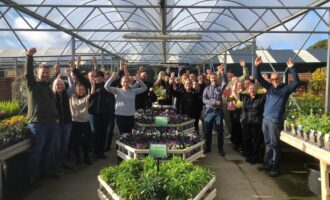There are many potential pitfalls when it comes to VAT treatment for agricultural businesses, and many businesses can make mistakes without realising it. Lydia Brasted, Outsourcing Manager, shares the common mistakes made and how outsourced finance can help avoid this.
Private proportions
One commonly made mistake in the agricultural sector is reclaiming VAT on private use items. This can lead to VAT being reclaimed in error and mistakes such as this can lead to costly HMRC inspections.
Farmhouses, in particular, can cause confusion. Whilst they are integral to the function of the farm and allow farmers to be available on demand, the domestic element needs to be accounted for correctly.
HMRC generally allow that 70% of the VAT on the farmhouse repair and maintenance can be reclaimed. However, this only applies in the circumstances below:
- The structure is used as a working farmhouse which is used full-time
- The structure is set up as a sole-trader or a partnership
Private proportions also must be applied on electricity and oil bills. Usually, a 60/40 split with 60% being business usage is allowable for VAT purposes. In some cases, a reclaim of up to 75% can be allowed, but an argument would need to be made to support this.
In the case of vehicles that are used for both business and private use the VAT fuel scale charge should be applied.
Using correct VAT rates
It’s important to use the correct VAT rate for sales raised as this reflects the amount repayable to HMRC and can lead to a nasty surprise down the line if not processed correctly.
Standard rated supplies are taxed at 20%. For agricultural businesses this will mostly relate to any contracting services provided. However, this will also apply to the sale of machinery. One anomaly is sale of wool, which whilst still an animal product is taxed at 20% as soon as it’s removed from the sheep.
Reduced rated supplies are taxed at 5%. For example, sale of timber if sold for heating purposes.
Zero-Rated supplies are taxed at 0%, but still allow VAT to be claimed on expenses in relation to this supply. For example, animal products, crops and livestock would all be zero rated on sale, VAT on fertiliser or chemicals used on the crops can be reclaimed. This means that many agricultural businesses are left in a net reclaim position at the end of each period.
Some income from farming is classed as outside of the scope. This applies to many subsidies and grants.
How to avoid making mistakes
Ensure that when invoices are posted into the accounting software that they are checked and that the correct VAT treatment is being used. It can be useful to check that the accounts package being used is up to the task.
Review of any VAT returns is important to ensure no mistakes were made. Check through any items with high value or any items with irregular VAT treatment to ensure these have been processed correctly. There are many software options on the market which can streamline this process.
If in doubt, seek professional help. An accountant should be able to assist with the correct VAT treatment should businesses have any queries.
How can outsourcing your finance help?
Using a firm for outsourced finance such as bookkeeping gives businesses the benefit of passing all documentation over and allowing the firm to process correctly. Leveraging experience and expertise, firms can ensure that whatever has been sold or purchased is treated correctly for VAT purposes.
Private proportions will be agreed and applied to all relevant invoices to ensure that treatment is always uniform and correct. A VAT specialist will also be able to guide you on what the correct private proportions will be. This can save businesses money on HMRC investigations and fines.
As agricultural businesses are more likely to be under claiming VAT rather than over-claiming it, outsourcing to experienced agricultural specialists and asking them to review your previous VAT returns can lead to corrections being made. As these will be picked up in the next VAT return, it can lead to a larger reclaim.
Engaging with an agricultural specialist will also help ensure that income and expenditure are processed based on the most recent rules and regulation.
If you would like to speak to one of our agricultural specialists about how we can help you and your farming enterprise, please get in touch with Lydia Brasted by calling 0330 058 6559 or emailinghello@scruttonbland.co.uk







